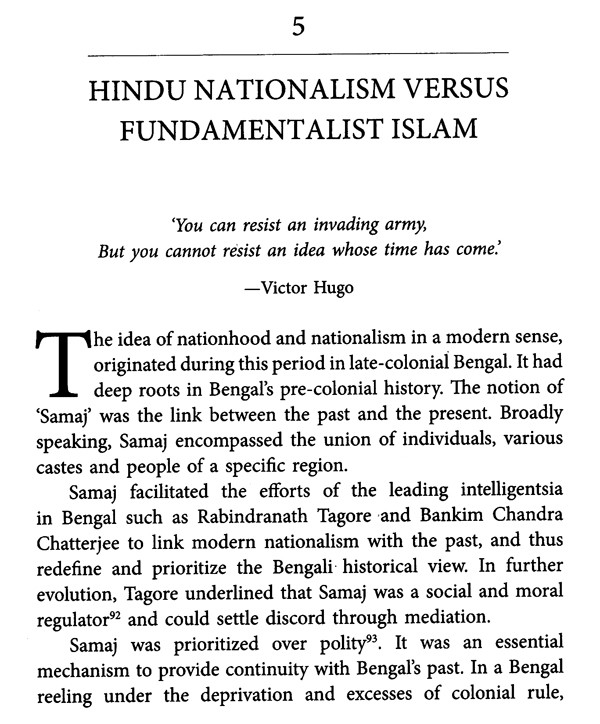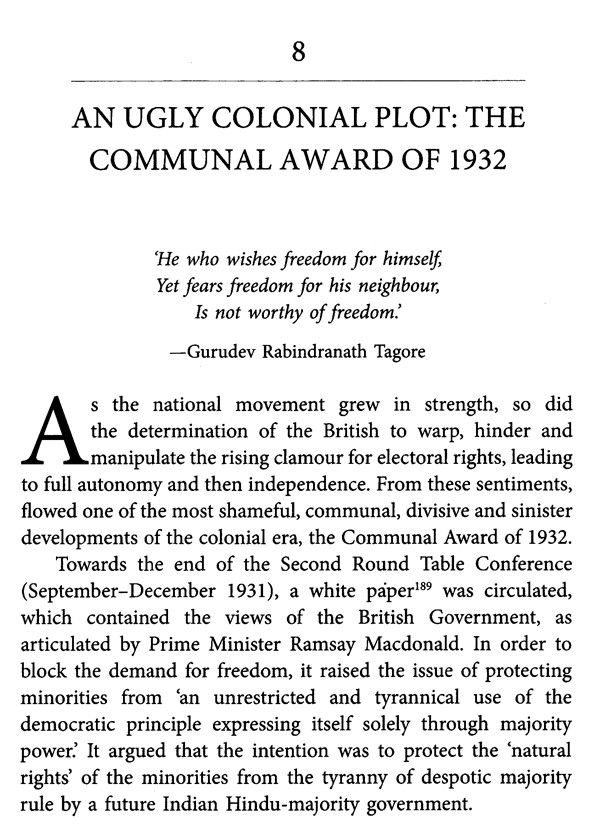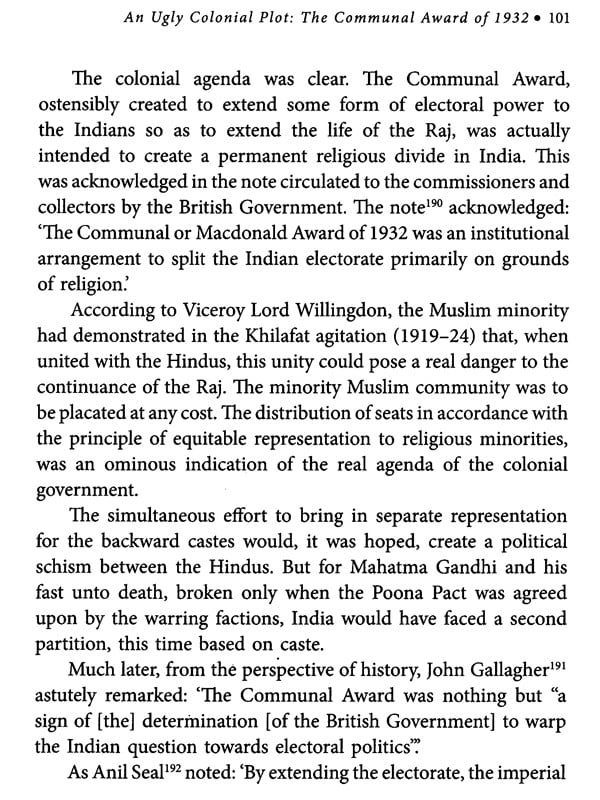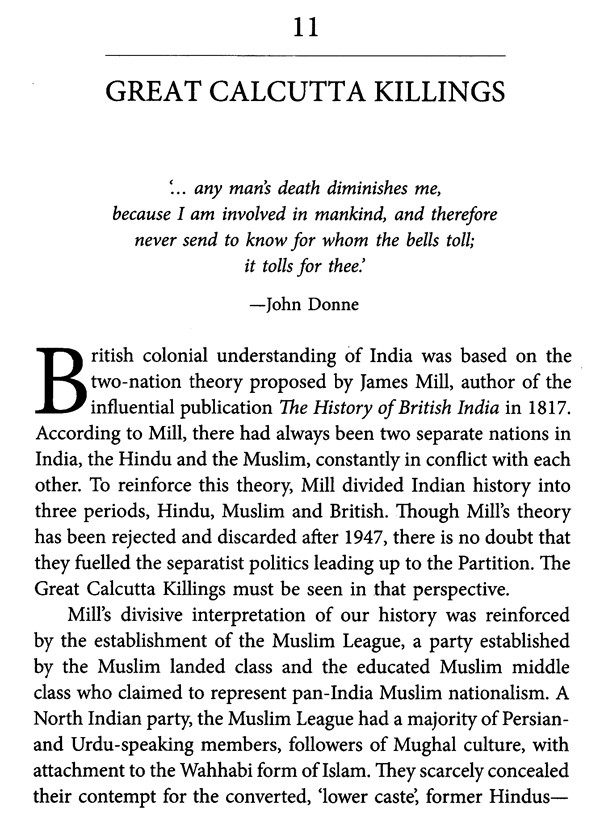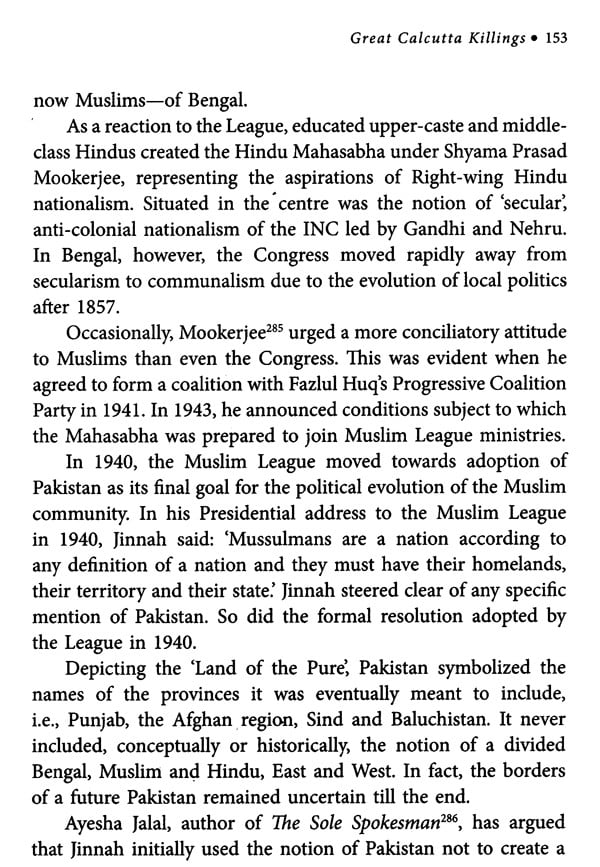
Bengal and Its Partition- An Untold Story
Book Specification
| Item Code: | UAB276 |
| Author: | Bhaswati Mukherjee |
| Publisher: | Rupa Publication Pvt. Ltd. |
| Language: | English |
| Edition: | 2021 |
| ISBN: | 9789353339586 |
| Pages: | 213 |
| Cover: | HARDCOVER |
| Other Details | 9.00 X 6.00 inches |
| Weight | 330 gm |
Book Description
This is a narrative about the painful division of a beloved part of undivided India, the partition of Bengal. Can there be closure to the Partition, not only for the generation who lived through the experience, but also the later generations who seem to subconsciously carry the burden of it? Will we ever be able to finally move on, leaving this painful national legacy behind? To know the answers we must-like a time-traveller-go back into the past and look at history and historical events as they unfolded themselves to their final tragic conclusion.
Bengal and Its Partition tells the untold story of this province's partition. In the process, it answers profoundly some deeply relevant questions:
Was this a tragedy waiting to happen?
Was Bengal's partition inherent in its demographic and religious fault lines?
Or was it a man-made plot, maliciously conceived by the British; played out in Bengal in the bloody acts of violence and slaughter?
To move on, we can neither ignore nor deny the past which continues to throw a long shadow on our future.
As it revisits the partition-and indeed the long road to it-this book reveals some untold facts for a better understanding of our past, even as it holds a message for the future.
Of Bengal by birth, heart and conviction, BHASWATI MUKHERJEE has distinguished herself in multiple roles as a diplomat. Widely regarded as a foremost expert on European affairs, she has written a well-received book on Indo-EU relations. Bhaswati is also respected for her long association with the UN and its agencies culminating in her role as India's Permanent Representative to UNESCO. Later, she was India's Ambassador to The Netherlands. An authoritative commentator on foreign affairs, her public interface started young as the President of Miranda House College Union. Ever since, politics has remained her deep interest and so has the study of history. It was in college that history became her passion. She excelled in its study then, using that knowledge now to become a historian herself. This book is bhaswati. Mukherjee’s cri de Coeur for the glory that was Bengal.
This is a narrative about partition, the painful division of a beloved part of undivided India, where my family had strong roots for centuries-the Partition of Bengal. Although in the Indian context, this enforced separation of families and the destruction of their roots is documented against the year 1947, in reality the tragedy unfolded much earlier. It began with the sale of Bengal to the English with Robert Clive's farcical victory in Plassey in 1757.
William Dalrymple said: 'Partition is central to modern identity in the Indian subcontinent, as the Holocaust is to identity among Jews, branded painfully onto the regional consciousness by memories of almost unimaginable violence... In a sense, 1947 has yet to come to an end:
Can there ever be closure? Can India and Indians, particularly young Indians, finally move on, leaving this painful national legacy behind them? To attempt to do that, one would have to, like a time traveller, go back to the past and look at history and historical events as they unfolded themselves to the final tragic conclusion. Was this a tragedy waiting to happen, inherent in the demographic and religious fault lines of Bengal? Or, was it a manmade plot, artfully and malevolently conceived by the colonizer, played out amidst scenes of slaughter and violence, whose memories will linger forever?
E.H. Carr in his book, What is History?, had noted: 'The historian without his facts is rootless and futile; the facts without their historian are dead and meaningless. He then went on to conclude: 'History is a continuous process of interaction between the historian and his facts, an unending dialogue between the present and the past:
This narrative too shall interpret the facts for a better understanding of our past, even as it throws a long shadow on our future.
**Contents and Sample Pages**



